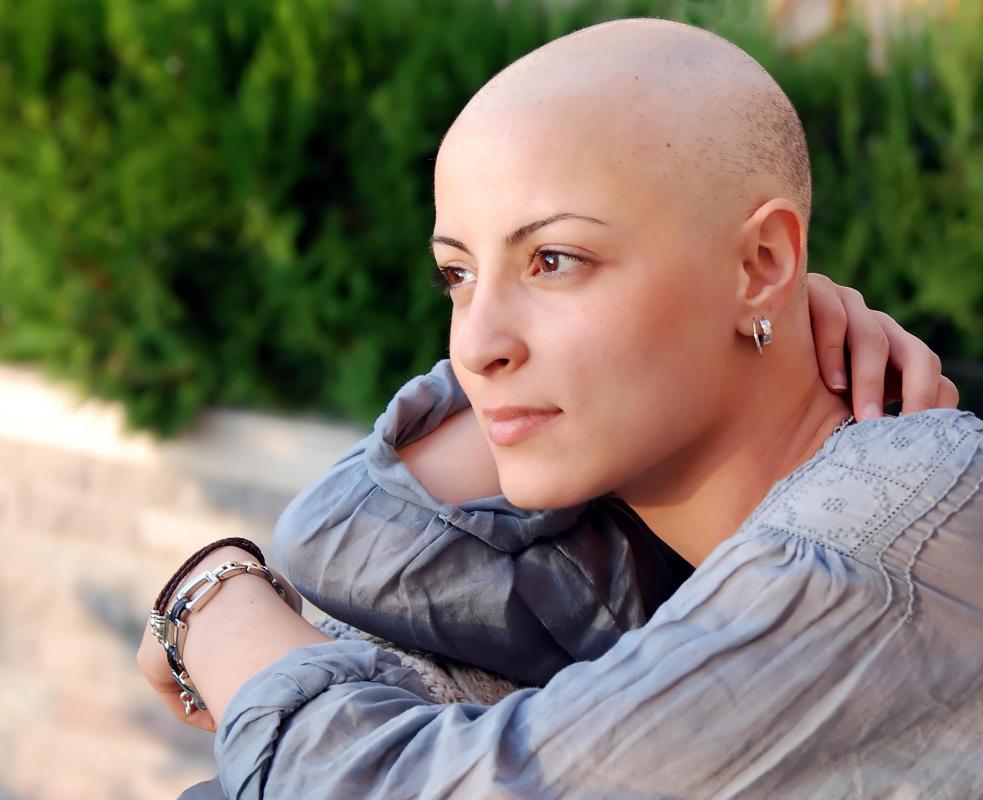At WiseGEEK, we're committed to delivering accurate, trustworthy information. Our expert-authored content is rigorously fact-checked and sourced from credible authorities. Discover how we uphold the highest standards in providing you with reliable knowledge.
What are the Pros and Cons of Chemotherapy for Breast Cancer?
When faced with a breast cancer diagnosis and a recommendation to undergo chemotherapy, patients have several pros and cons to weigh. Chemotherapy for breast cancer is a very common treatment plan because of its proven effectiveness at eradicating the disease. When used alone or with other treatments, chemotherapy may give a patient the best odds at survival. On the other hand, chemotherapy comes with well-known side effects that may make the treatment intolerable to some patients.
The primary advantage of using chemotherapy for breast cancer is the treatment’s proven track record. Advances in medical technology, more effective drugs, and better understanding of drug interactions have helped medical professionals devise treatment plans that more specifically target cancerous cells. Improved practices help ensure that cancerous cells are killed and make it less likely that patients will experience a recurrence of the cancer.

Another benefit to chemotherapy is the ability to continue a normal lifestyle during treatment. Many sessions require little, if any, hospitalization, although this is not true for every breast cancer patient. While patients may experience chemotherapy’s side effects during the cycle, the resting periods between cycles allows them to continue working, participating in social activities, and so on.

This treatment does not come without drawbacks, however, and it may cause a range of negative side effects that interfere with quality of life. Physical side effects often include nausea, hair loss, pain, weight loss or weight gain, and fatigue. These side effects are typically particularly pronounced during chemotherapy cycles, but may continue into resting periods. Breast cancer patients may find the side effects become increasingly severe as chemotherapy cycles progress, and this is often physically and mentally difficult for patients to bear.

Another disadvantage is jeopardized immunity. While targeting cancerous cells, chemotherapy drugs also lower white blood cell counts, which then lowers the body’s natural defenses against infection. Breast cancer patients using chemotherapy, therefore, must take extra precautions to avoid exposing themselves to infections or other illnesses.
It is important for patients to fully discuss the pros and cons of chemotherapy for breast cancer with a medical professional before embarking on the treatment. Patients should also educate themselves on alternatives to chemotherapy, such as radiation or surgery, to be able to consider whether there are better treatment options. Even if no better cancer treatment cannot be found, patients who arm themselves with the pros and cons of chemotherapy help take control of their treatment.
AS FEATURED ON:
AS FEATURED ON:















Discussion Comments
When my mother was diagnosed with breast cancer in 1989, she had a modified radical mastectomy and chemotherapy. Her oncologist said that, because three out of 17 lymph nodes they removed were positive for cancer cells, that placed her at a moderate risk for recurrence. So, he recommended chemo.
She had eight chemo treatments over six months. They weren't easy. Her hair fell out, she had nausea and a strange taste in her mouth. She had fatigue and memory problems. However, it's been nearly 25 years and here's what she doesn't have: cancer.
Her cancer was the common ductal carcinoma in situ, it was caught early and the tumor was not very big, plus it had clearly defined borders. She found the lump herself, in fact.
No, chemotherapy is no picnic, for sure. But it does work.
Post your comments